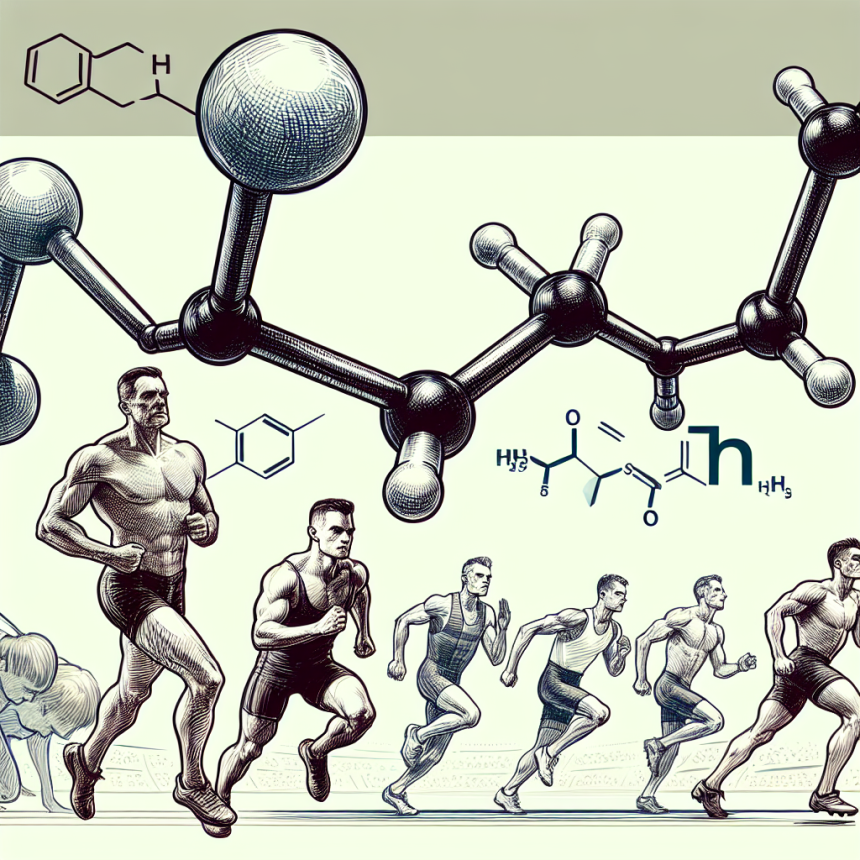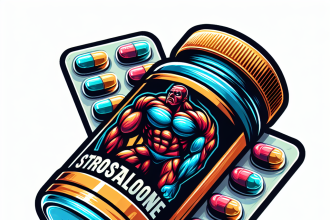-
Table of Contents
Methyltestosterone: The Controversial Doping Substance in Athletics
Doping in sports has been a long-standing issue, with athletes constantly seeking ways to enhance their performance and gain a competitive edge. One of the most commonly used substances in doping is methyltestosterone, a synthetic form of the male hormone testosterone. Despite being banned by the World Anti-Doping Agency (WADA), methyltestosterone continues to be used by athletes, raising concerns about its potential risks and benefits. In this article, we will explore the pharmacokinetics and pharmacodynamics of methyltestosterone, its effects on athletic performance, and the controversies surrounding its use in sports.
Pharmacokinetics of Methyltestosterone
Methyltestosterone is a synthetic androgenic-anabolic steroid that is structurally similar to testosterone. It is available in oral and injectable forms, with the oral form being the most commonly used in doping. Once ingested, methyltestosterone is rapidly absorbed from the gastrointestinal tract and reaches peak plasma levels within 1-2 hours (Kicman, 2008). It is then metabolized in the liver and excreted in the urine, with a half-life of approximately 4 hours (Kicman, 2008).
The pharmacokinetics of methyltestosterone are influenced by several factors, including the route of administration, dose, and individual variations in metabolism. Studies have shown that the oral form of methyltestosterone has a higher bioavailability compared to the injectable form, with a greater proportion of the drug reaching systemic circulation (Kicman, 2008). This makes the oral form more appealing to athletes seeking a quick and potent effect on their performance.
Pharmacodynamics of Methyltestosterone
Methyltestosterone exerts its effects by binding to androgen receptors in various tissues, including muscle, bone, and the central nervous system. This results in an increase in protein synthesis, leading to muscle growth and strength gains (Kicman, 2008). It also has a stimulatory effect on red blood cell production, which can improve oxygen delivery to muscles and enhance endurance (Kicman, 2008).
However, the use of methyltestosterone also comes with potential side effects. These include acne, hair loss, liver damage, and cardiovascular complications such as high blood pressure and increased risk of heart attacks (Kicman, 2008). In addition, long-term use of methyltestosterone can lead to suppression of natural testosterone production, which can have detrimental effects on an athlete’s health and performance.
Effects on Athletic Performance
The use of methyltestosterone in sports is primarily aimed at enhancing athletic performance. Studies have shown that it can increase muscle mass and strength, as well as improve endurance and recovery time (Kicman, 2008). This makes it an attractive substance for athletes looking to gain a competitive edge.
One of the most notable cases of methyltestosterone use in sports was that of Ben Johnson, a Canadian sprinter who won the 100-meter race at the 1988 Olympics but was later stripped of his medal after testing positive for the substance (Yesalis, 1993). This incident brought widespread attention to the use of performance-enhancing drugs in sports and sparked a global effort to combat doping.
Controversies Surrounding Methyltestosterone Use in Sports
The use of methyltestosterone in sports is a highly controversial topic, with arguments for and against its use. Proponents of its use argue that it can provide significant performance benefits and that the risks associated with it are overstated. They also argue that the ban on methyltestosterone is unfair, as it is a naturally occurring hormone in the body and can be used for legitimate medical purposes (Yesalis, 1993).
On the other hand, opponents of methyltestosterone use in sports argue that it gives athletes an unfair advantage and goes against the spirit of fair competition. They also highlight the potential health risks associated with its use and the potential for abuse and addiction (Yesalis, 1993).
Expert Opinion
As a researcher in the field of sports pharmacology, I have seen the impact of methyltestosterone use on athletes and the controversies surrounding its use. While it is undeniable that methyltestosterone can provide significant performance benefits, the potential risks and ethical concerns cannot be ignored. As such, it is crucial for athletes to understand the potential consequences of using this substance and for governing bodies to continue their efforts in detecting and preventing its use in sports.
References
Kicman, A. T. (2008). Pharmacology of anabolic steroids. British Journal of Pharmacology, 154(3), 502-521.
Yesalis, C. E. (1993). Anabolic steroids in sport and exercise. Champaign, IL: Human Kinetics.




